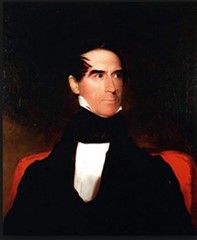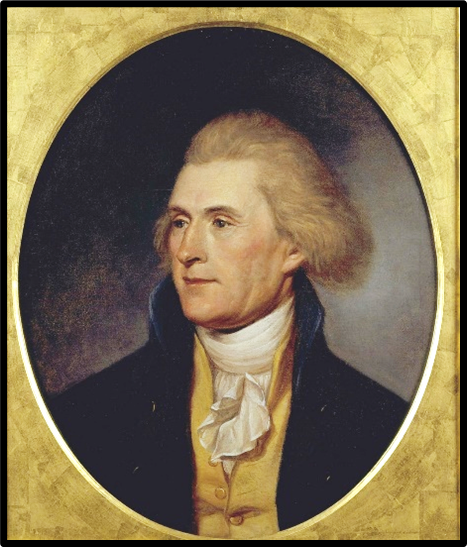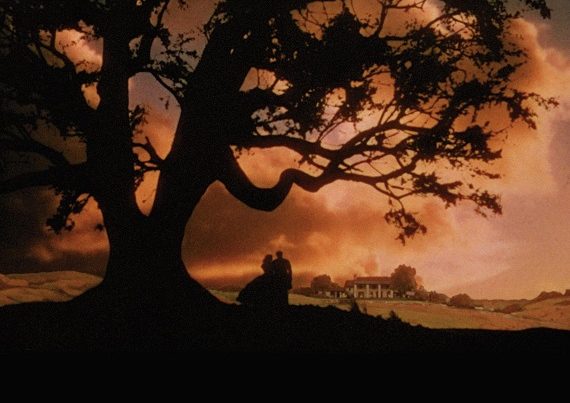At the request of friend John Spear Smith[1] (1785–1866, figure below), who named a newborn child after him, Thomas Jefferson, in a letter (21 Feb. 1825) that he pens some one and one-half years prior to his death, offers philosophical advice to the newborn child, Thomas Jefferson Smith.

The missive takes the form of an epistolary trilogy: an advisory letter, a poem (a poetic rendition of Psalm of David XV), and Jefferson’s own Decalogue of Ethical Maxims. Jefferson writes:
This letter will, to you be as one from the dead, the writer will be in the grave before you can weigh it’s counsels. your affectionate and excellent father has requested that I would address to you something which might possibly have a favorable influence on the course of life you have to run, and I too, as a namesake, feel an interest in that course. few words will be necessary with good dispositions on your part (my numbers below).
(1) adore God. (2) reverence and cherish your parents. (3) love your neighbor as yourself, and your country more than yourself. (4) be just. (5) be true. (6) murmur not at the ways of Providence. (7) so shall the life into which you have entered be the Portal to one of eternal and ineffable bliss. and (8) if to the dead it is permitted to care for the things of this world, every action of your life will be under my regard. farewell.
The portrait of a good man by the most sublime of Poets [King David], for your imitation
Lord, who’s the happy man that may
To thy blest courts repair,
Not, stranger-like, to visit them,
But to inhabit there?
’Tis he whose every thought and deed
By rules of virtue moves;
Whose generous tongue disdains to speak
The things his heart disproves.
Who never did a slander forge
His neighbor’s fame to wound;
Nor hearken to a false report
By malice whispered round.
Who vice, in all it’s pomp and power,
Can treat with just neglect;
And piety, tho’ cloath’d in rags,
Religiously respect.
Who, to his plighted vows and trust
Has ever firmly stood;
And, tho’ he promise to his loss,
He makes his promise good.
Whose soul in usury disdains
His treasure to employ;
Whom no rewards can ever bribe
The guiltless to destroy.
The man who, by this steady course,
Has happiness ensur’d,
When earth’s foundations shake, shall stand,
By Providence secur’d.
A Decalogue of Canons for observation in practical life.
- Never put off till tomorrow what you can do to-day.
- Never trouble another for what you can do yourself.
- Never spend your money before you have it.
- Never buy what you do not want, because it is cheap; it will [not] be dear to you.
- Pride costs us more than hunger, thirst and cold.
- We never repent of having eaten too little.
- Nothing is troublesome that we do willingly.
- How much pain have cost us the evils which have never happened!
- Take things always by their smooth handle.
- When angry, count ten, before you speak; if very angry, an hundred.
There is much I can say about the counsel that Jefferson leaves to the newborn child. I focus on the letter and his “canons,” but I make few my critical comments.
In the advisory letter, the ordering of Jefferson’s duties is significant: God is first; one’s parents, next; and all others third. There is implicitly the sentiment of self-love, but Jefferson notes that love of one’s country comes before love of one’s self. Jefferson’s lifelong service to his country (and to Virginia), at the expense of his personal happiness and the economical wellbeing of Monticello and other lands throughout his life, is evidence of his dutifulness and love of country (and state).
While offering decades of service to the revolution and thereafter to the fledgling federation of states and to Virginia, Jefferson neglected his family and personal affairs.
Concerning the former, Jefferson’s wife died just after his stint as governor of Virginia; daughter Lucy Elizabeth passed while Jefferson was minister plenipotentiary in Paris; and daughter Maria died while Jefferson was president.
Concerning the latter, Jefferson’s lands were in large disarray due to neglect and poor management after his stints as secretary of state and as president. Upon retirement as secretary of state, Jefferson writes of the sad state of his fields and his plan to rejuvenate them through rotation of his crops to George Washington (14 May 1794): “But it will take me from 3. to. 6. years to get this plan underway. I am not yet satisfied that my acquisition of overseers from the head of Elk has been a happy one, or that much will be done this year towards rescuing my plantation from their wretched condition. Time, patience & perseverance must be the remedy; and the maxim of your letter, ‘slow & sure,’ is not less a good one in agriculture than in politics.”[2] Great-granddaughter Sarah Randolph sums the scenario prior to and during his presidency: “His private affairs were in sad need of his constant presence at home after such long absences in the public service. He now owned in his native State over ten thousand acres of land, which for ten long years had been subject to the bad cultivation, mismanagement, and ravages of hired overseers.”[3]
Finally, Jefferson’s canons for good living deserve some comments. Jefferson was industrious, not hebetudinous. Jefferson was self-sufficient, not dependent. Jefferson was temperate in appetite, not prodigal. Last, Jefferson was Stoical, not Epicurean. He thought that it was wasteful to fret over things that might not happen, important to handle economically all problems, and essential to eschew completely anger.
What is especially noteworthy about the letter is Jefferson’s largesse and sense of cosmic continuity. The letter, well-crafted, is a gift to an infant, four generations (in Jefferson’s sense of 19 years) removed from Jefferson. As he notes in a letter to John Adams (1 Aug. 1816) some 10 years prior to his death and in a sentiment that is fundamentally Stoical (esp. Senecan), there is a right time for death, as there is for life. “There is a ripeness of time for death, regarding others as well as ourselves, when it is reasonable we should drop off and make room for another growth. When we have lived our generation out, we should not wish to encroach on another.” Jefferson, as it were, passes the torch to young Smith, as the particularity of his own existence is soon to end, but he leaves behind to the infant, prior to his passing, some words timeless.
That is perhaps Jefferson’s greatest gift to humanity, as we celebrate his birthday: recognition that while each of us has a finite existence, each of us is an essential part of something divine and timeless. In sum, there is a particularity to human existence as well as an universality. Each of us is part of deity’s plan in the unfolding of cosmic events—that is for Jefferson something we feel, not cognize—and we praise best deity when we live and pass as cognizant and sensitive beings, aware of, and in celebration of, the cosmic flow of events. We are to trust God—to “murmur not at the ways of Providence.”
Click below for a video alternative with Dr. H and Donna Vitek.
****************************************************
[1] Smith, son of US politician Lieutenant Colonel of the Revolutionary War, Samuel Smith (1752–1839), married Cary Ann Nicholas, daughter of Jefferson’s dear friend Wilson Cary Nicholas.
[2] See also TJ to James Madison, 27 Apr. 1795.
[3] Sarah N. Randolph, The Domestic Life of Thomas Jefferson (Cambridge: University Press, 1939), 191.







I have always wondered, if Jefferson celebrated or took note of birthdays, if he did so on April 2nd (old style) or by the new calendar date of April 13th? I have never seen any documentation that would address this question but perhaps Mr. Holowchak’s greater scholarship on this matter has encountered it. Of his canons for observation in practical life number three, ‘Never spend your money before you have it’; a caution regarding the use of credit and the undertaking of debt, is one that I regard as of fundamental ethical and economic importance. Regrettably, it is one his country has never took to heart and from the state of his affairs at his death, was not one that he himself rigorously practiced but instead rather behaved in the typical self-indulgent manner of his aristocratic class.
No evidence that he thought much of his birthday. He thought little in general of holidays. He did not let others know of his birth date.
Of course, C-Ville no longer celebrates his birthday…
https://www.washingtonpost.com/history/2020/03/01/charlottesville-thomas-jefferson-birthday-slavery/
The link to the Washington Post has a paywall. As if…. .
It’s assumed the story follows the Charlottesville mayor assuring that Thomas Jefferson is “still able to celebrate his birthday in hell” following notice of discontinuing the celebration. The comment was predictable given that the mayor, a few years before, recruited rioters to deny a peaceful demonstration of first amendment rights.